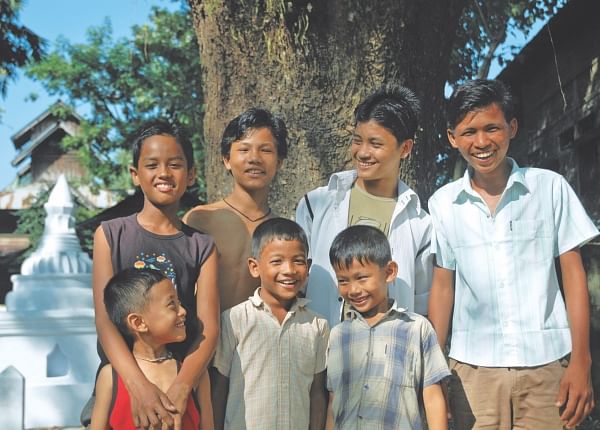| Home - Back Issues - The Team - Contact Us |
 |
| Volume 11 |Issue 09| March 02, 2012 | |
|
|
Letters A Convincing Cover Story I would like to thank the Star Magazine for this week's praiseworthy cover story on beauty. It is fallacious to think that the concept of beauty is timeless and universal. It changes with the passage of time. Naomi Wolf, a prominent feminist writer of America, says in her book ‘The Beauty Myth’ that beauty is a socially constructed myth. She further adds that historically it was established that beautiful women were reproductively successful. It was an ignoble colonial attitude whereby superiority was asserted by the white masters upon the black slaves, and nobility was only the prerogative of the white population. In this age, it is nothing short of enslavement to think that mere fair complexion defines beauty and is synonymous to stellar success. Regrettably, this idea is fetishised still now by the media, particularly in cosmetic ads to benefit financially. We tend to take the matter for granted. But it is creating a racial stereotype in the mind of women, resulting in many societal implications. It is undoubtedly undermining the dignity and identity of women. There should be a proper code of conduct in place before the media telecasts these things. Feminist and civil society members should take vigorous effort to create public awareness in this regard. Jamil Akhter
Response to 'When Religion is a Burden' The Star Diary entry and its subsequent letters made me write this response. I urge everybody to consider this: is it essential that the Ijtema arranged by the tableeq needs to be held at Tongi? Why cannot it be arranged in some other place away from the city, preferably the Sholakia Ground in Kishoreganj, which it remains unused for most of the year? My limited knowledge about Islam suggests that it does not allow anything in the name of religion that will cause public Some of my non-Muslim friends living near Tongi have already expressed dissatisfaction about how it hampers their public life. As Muslims, it is our duty to convince them that Islam actually cares for people of all religions. One of the respondents in the February 24th issue mentioned that if we can allow public sufferings for ICC World Cup, why cannot the same be done for the Ijtema? The answer to her question is that Islam's name is not used (or misused) for the World Cup, but it is done for the Ijtema. So, I urge the government to take proper steps to ease public suffering during the Ijtema. Tauhidul Islam Have hare we become the oppressors? Thanks to the Star for bringing to notice how we, the nation, who fought for our language rights are now denying the same rights to our fellow countrymen. It is true that our ethnic identity is Bengali but not all the people of the land, Bangladesh, are Bengalis. So why does only the Bengali ethnic identity get priority over all the others? Is it because they are few in number? Why do we only celebrate Bengali New Year? Why has not there been a translation of the national anthem into Chakma, Monipuri, Khumi, Mandi, Sawtali and other non-Bengali languages? We all live under the same sky of ‘Sonar Bangla’. But my fellow countrymen, with a different lifestyle from mine, are collectively called adivashis and depicted in text books as 'others'. The same text books do not have similar paragraphs describing what Bengalis eat, wear and how they live. Thanks to the Star for inducing these thoughts that never crossed my mind. Hopefully, we can correct the wrongs we have been doing and work towards a more equitable society in the future. Sonia Ahmed
An Insightful Issue I must congratulate the Star for bringing out a particularly good issue. Beginning from the cover story on our destructive obsession with fairness to the piece on the eviction of slum dwellers in Karail, from the special feature on linguistic imperialism to the tribute on Humayun Faridi, the latest issue brought to attention a number of relevant and topical subjects, and presented them in an appealing manner. I must say that I have noticed a change in the Star in recent months – it has become more serious, yet more engaging. I hope it keeps up its good work! I have noticed that the Star often pushes its boundaries, sometimes even publishing stories that the main paper doesn't! I would urge the writers and the editors to do more challenging and controversial stories and bring to reader's attention topics that are considered taboo by mainstream media. Ridwan Ali Karim A Complete Actor The Star's tribute to late actor Humayun Faridi was well written and informative. When Shangshaptak was aired on BTV in the early 90s, I was a young child. Logically, I don't even remember the plot of the play let alone any dialogues. But I still remember how deeply I was touched by the shrewdness of Kankata Ramzan. However, it wasn't until much later that I learned that the character was played by Humayun Faridi, whose acumen on stage and in front of the camera is unparalleled. Later, during my school years, I found that most of the Bangladeshi films featured him as the crooked character. My friends and I used to bunk off schools on most of the thursdays and sometimes we went to cinema halls to watch whatever they were playing. The evil characters played by Faridi were always more impressive than any other character in the film. I still remember that I always regretted that Faridi always got arrested or killed by the end of those films. I think he will live forever in the hearts of thousands of people of Bangladesh. Abdul Kader Submission Guideline: Letters to the Editor, Star Diary and Write to Mita, with the writer's name and address, should be within 200 words. All articles should be within 1,200 words. A cover letter is not necessary, but every write-up should include the writer's name, phone number and email address (if any). While The Star welcomes unsolicited articles and photographs, it cannot accept the responsibility of their loss or damage. The Star does not return unsolicited articles and photos. Response time for unsolicited write-ups ranges from three weeks to two months. All articles submitted are subject to editing for reasons of space and clarity. All materials should be sent to: The Star magazine, 64-65, Kazi Nazrul Islam Avenue, Dhaka-1215, Fax: 880-2-8125155 or emailed to: <[email protected]> It is recommended that those submitting work for the first time to The Star take a look at a sample copy beforehand. Our website is: http://www.thedailystar.net/magazine Copyright (R) thedailystar.net 2012 |

